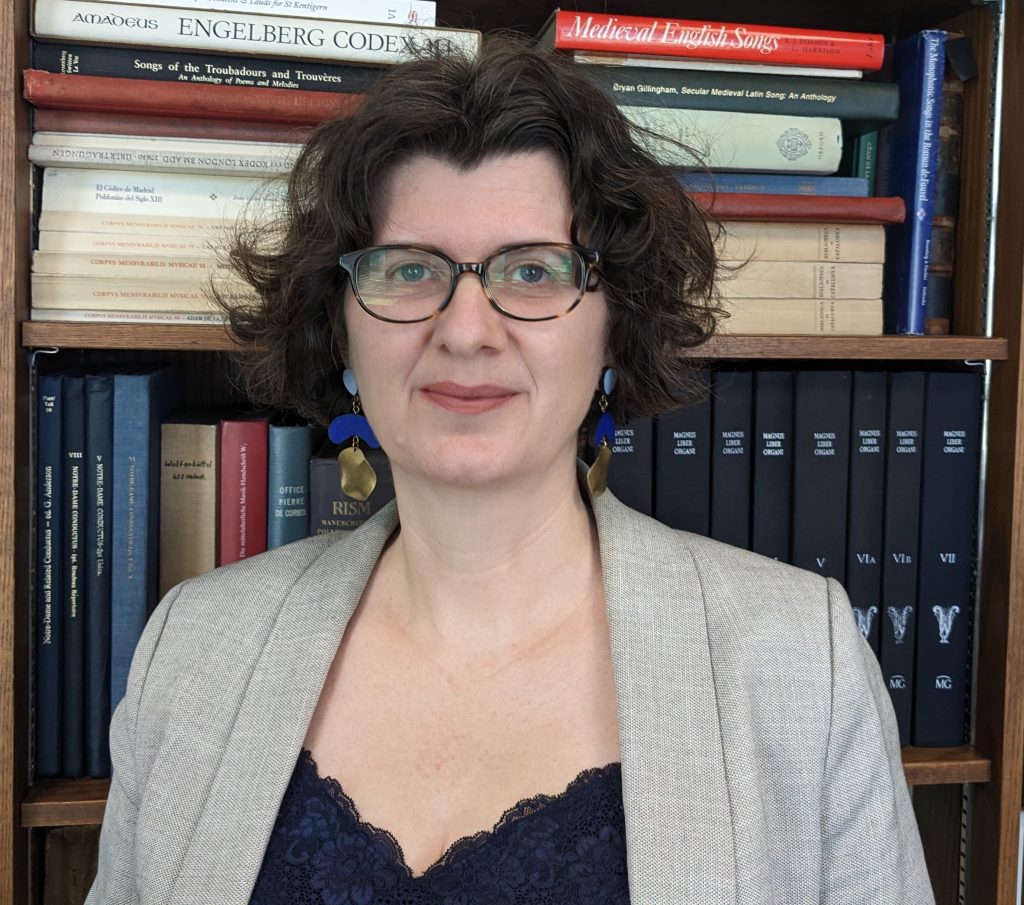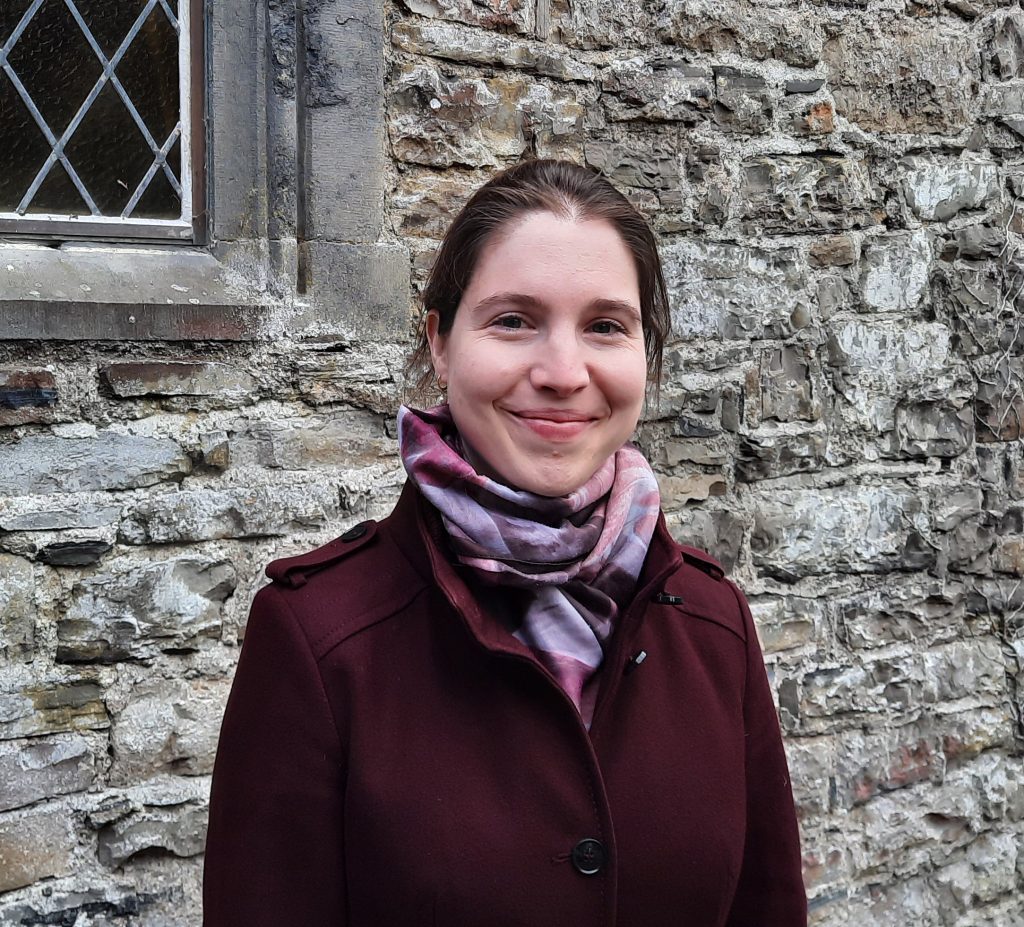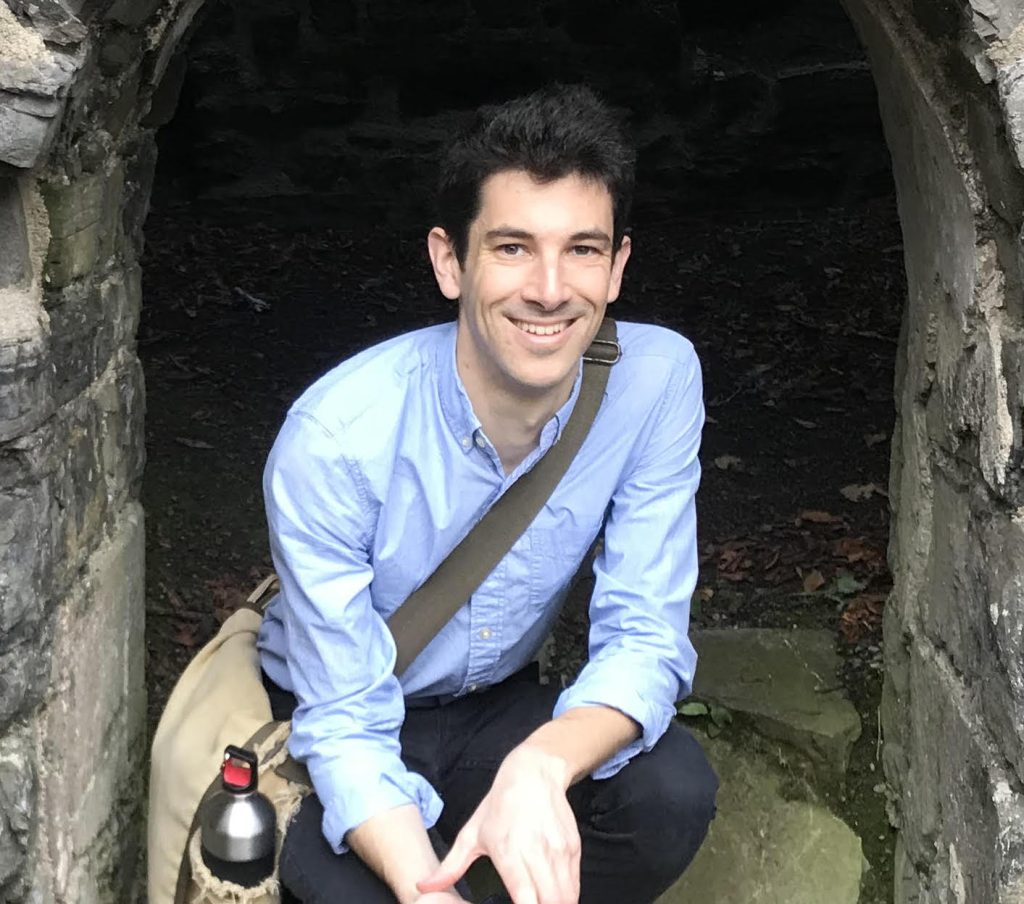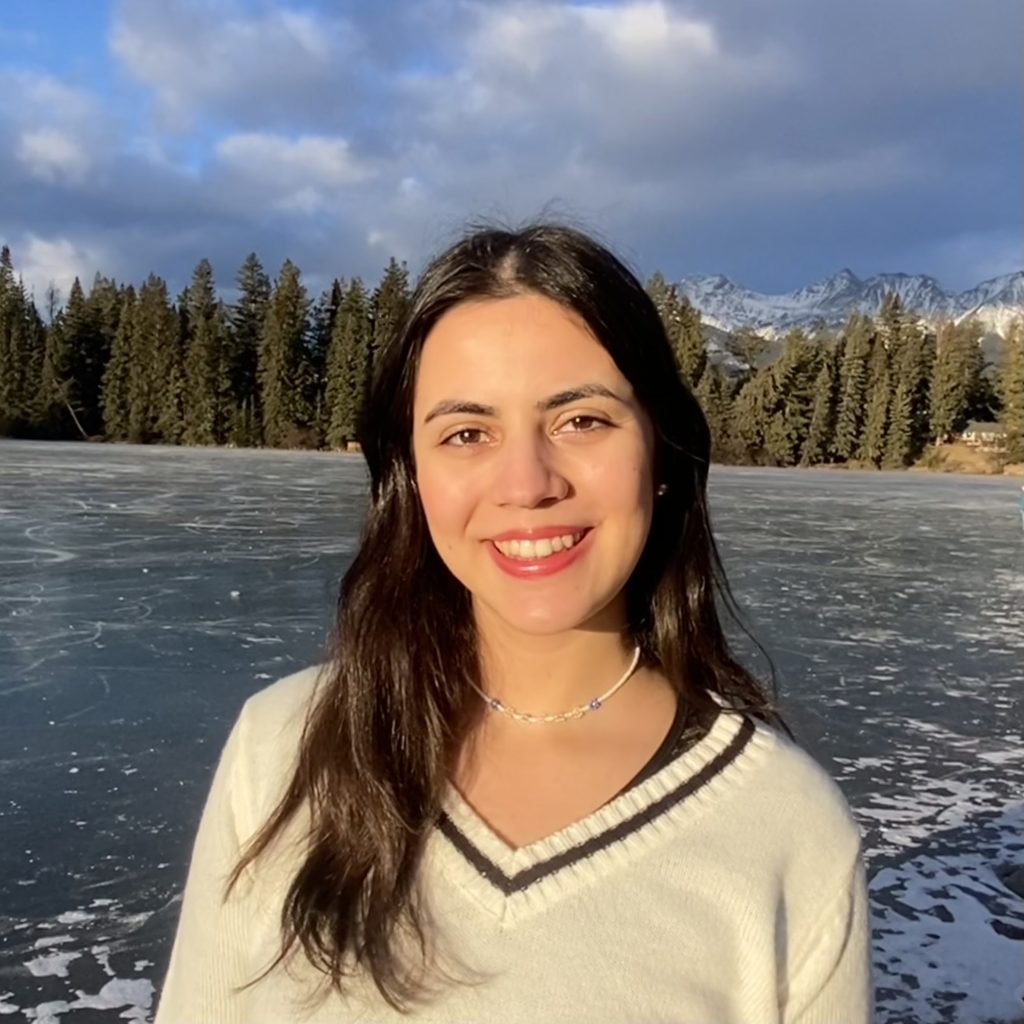Prof. Karen Desmond

Karen Desmond is Professor of Music at Maynooth University; prior to that appointment she was a Full Professor and Chair of the music department at Brandeis University. Her research as a historical and digital musicologist delves into the aesthetics, theories, and technologies that underpinned medieval music-making. She is currently the Principal Investigator for a 2-million-euro ERC-funded project titled BROKENSONG that examines polyphonic singing and written culture in late medieval Britain and Ireland. She has also been awarded several fellowships and grants for her research from the NEH, including for her digital musicology project Measuring Polyphony. Her monograph on the French Ars nova, titled Music and the Moderni, 1300-1350 (Cambridge University Press, 2018), won the American Musicological Society’s 2019 Lewis Lockwood Award, and she has second monograph forthcoming with Cambridge titled Organizing Medieval Alleluyas: Music Analysis and the Creative Process in Late Medieval Britain.
Dr Johanna-Pauline Thöne

Dr Johanna-Pauline Thöne is a postdoctoral researcher and musicologist at Maynooth University, specializing in the analysis and reconstruction of fourteenth-century polyphony. Her broader interests include fragmentology and digital reconstructions, palaeography, repertory transmission, philology, and the cultural history of the late Middle Ages. Johanna holds Bachelor’s degrees in harpsichord performance (HMT Leipzig) and Greek and Latin Philology (Leipzig University) and a Master’s degree in Musicology (JGU Mainz). She received her PhD from the University of Oslo in 2024 with a thesis entitled ‘Papal Polyphony during the Great Western Schism (1378–1417): How Music Dedicated to Popes Absorbed and Reflected a Time of Crisis’. She has presented her research at numerous international conferences, including the Medieval and Renaissance Music Conference, the International Symposium on Late Medieval and Early Renaissance Music (Kloster Neustift/Novacella), the Annual Meeting of the American Musicological Society, and the International Medieval Congress at Leeds.
Dr Eric Nemarich

Dr Eric Nemarich is a postdoctoral researcher and historian at Maynooth University. Eric’s work explores how professional and intellectual communities formed in later medieval Europe and the Mediterranean. He holds a Bachelor’s degree in Medieval Studies and Classics from Georgetown University and defended his PhD thesis, ‘Zealots of Justice: Coercive Officials in Late Medieval Italy’, at Harvard University in August 2024. His scholarship is archive-based and employs the tools of prosopography and social network analysis to reconstruct premodern communities of knowledge, whether these were professional police forces (‘coercive officials’), surgeons who served as medical examiners for courts of public justice, or composers of liturgical polyphony. As part of the BROKENSONG team, Eric studies the institutional spaces in which polyphony flourished throughout the British Isles from c.1150 to c.1350. He also collaborates with the Documentary Archaeology of Late Medieval Europe (DALME), a project at Harvard University.
Inês Nunes Trindade

Inês Nunes Trindade is a PhD student at Maynooth University (ERC Grant, 2024-28), where she is writing her doctoral dissertation on the plainchant of Worcester Cathedral under the direction of Professor Karen Desmond. Inês holds a Bachelor’s degree in Musical Sciences and a Master’s degree in Historical Musicology from the Universidade NOVA de Lisboa, Faculdade de Ciências Sociais e Humanas (NOVA-FCSH). She completed her MA dissertation, ‘Communion Antiphons: Liturgical and Musical Identity in the Sources of Braga and Guimarães, 12th-17th centuries’, under the supervision of Professor Elsa de Luca. Inês collaborates with the Early Music Study Group at CESEM (Centro de Estudos de Sociologia e Estética Musical), where she is a member of the project ‘Echoes from the Past: Unveiling a Lost Soundscape with Digital Analysis’. At CESEM, she contributed to the projects ‘The Musical Manuscripts of the Belém Monastery’ and, with a Fundação para a Ciência e a Tecnologia (FCT) Grant, ‘Texts and Voices Lost and Found: Recovering, Reconstituting, and Recreating Musical Fragments (c.1100-c.1600)’.